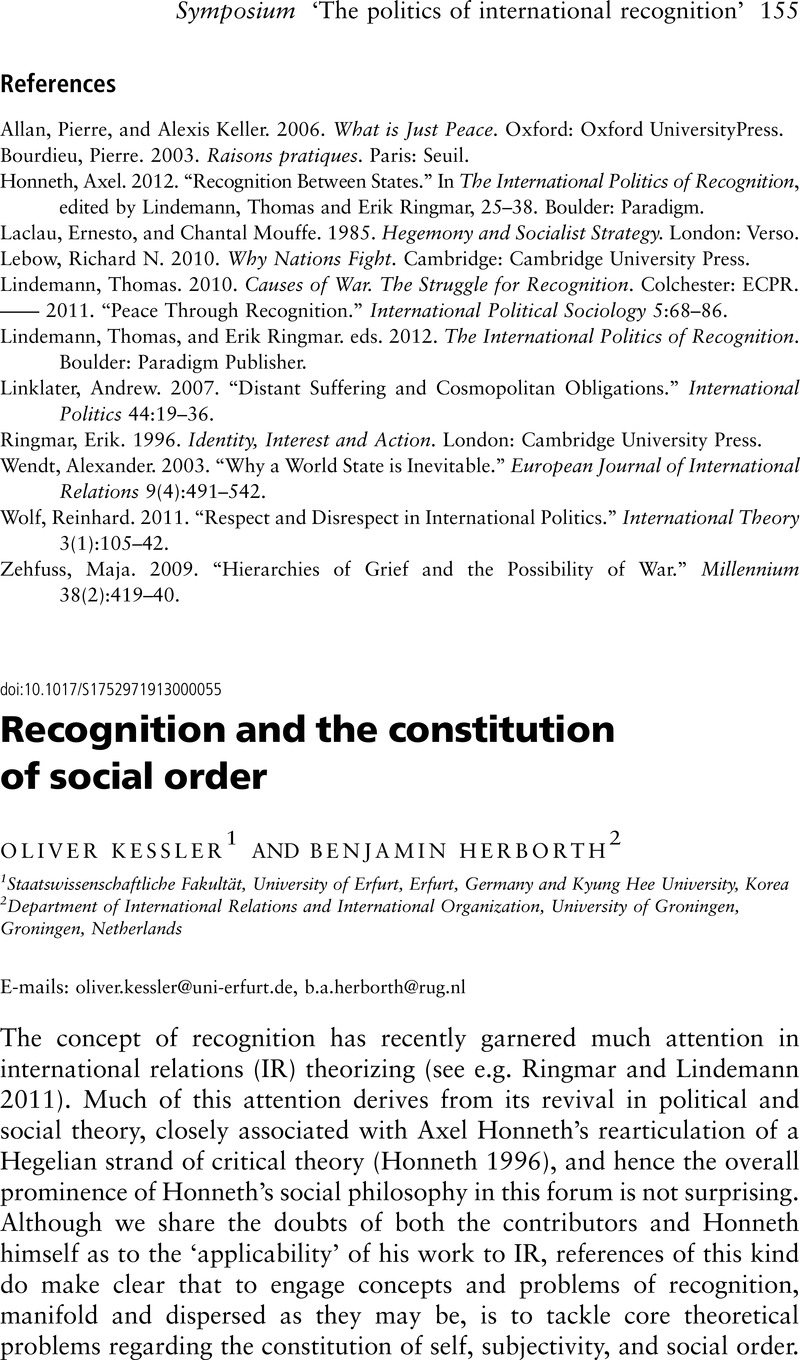Crossref Citations
This article has been cited by the following publications. This list is generated based on data provided by Crossref.
Geis, Anna
Fehl, Caroline
Daase, Christopher
and
Kolliarakis, Georgios
2015.
Recognition in International Relations.
p.
3.
Goerzig, Carolin
and
Hofmann, Claudia
2015.
Recognition in International Relations.
p.
237.
Gustafsson, Karl
2016.
Routinised recognition and anxiety: Understanding the deterioration in Sino-Japanese relations.
Review of International Studies,
Vol. 42,
Issue. 4,
p.
613.
Tanaka, Maria
2017.
Reconceptualizing regional order: a critical/scientific realist (CR/SR) intervention.
Journal of Contemporary East Asia Studies,
Vol. 6,
Issue. 1,
p.
79.
Adler, Emanuel
2019.
World Ordering.
Schwartz-Shea, Peregrine
2019.
Scholarly Reflexivity, Methodological Practice, and Bevir and Blakely's Anti-Naturalism.
Critical Review,
Vol. 31,
Issue. 3-4,
p.
462.
Costa Lopez, Julia
2020.
Political Authority in International Relations: Revisiting the Medieval Debate.
International Organization,
Vol. 74,
Issue. 2,
p.
222.
Blanc, Emmanuelle
2023.
Recognition through dialogue: How transatlantic relations anchor the EU’s identity.
The British Journal of Politics and International Relations,
Vol. 25,
Issue. 1,
p.
102.



